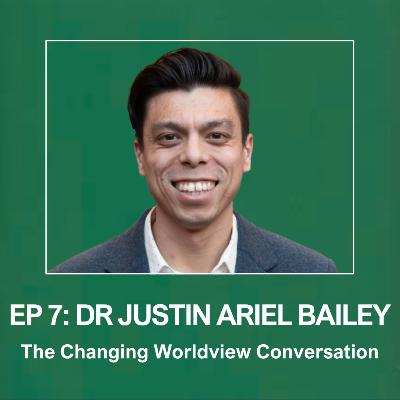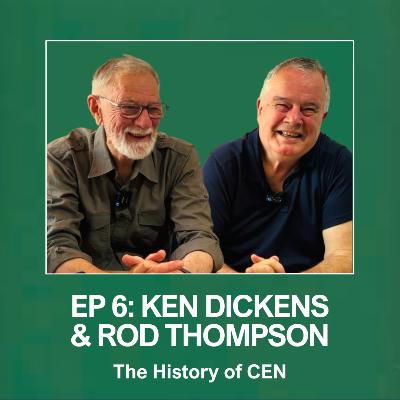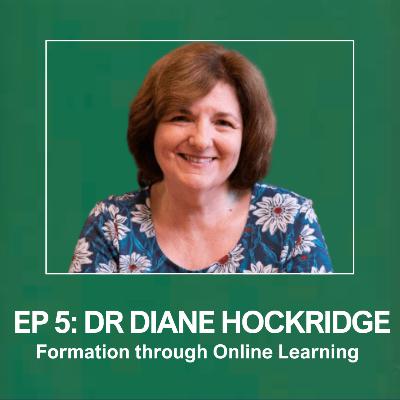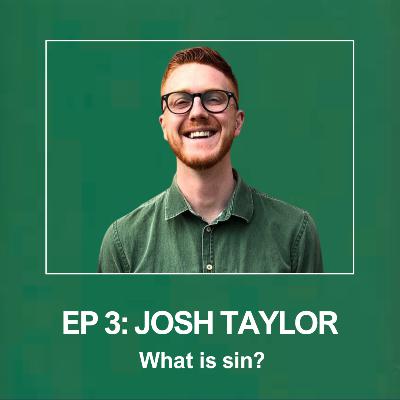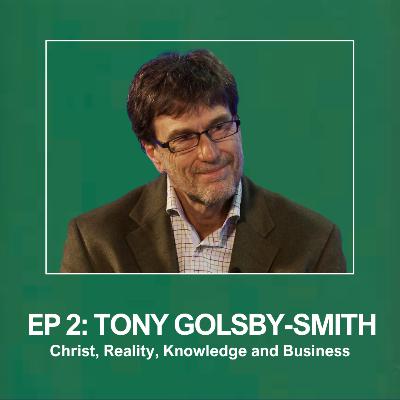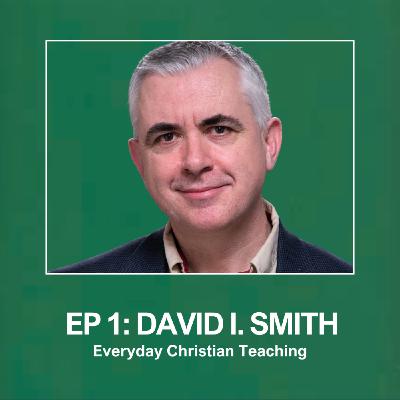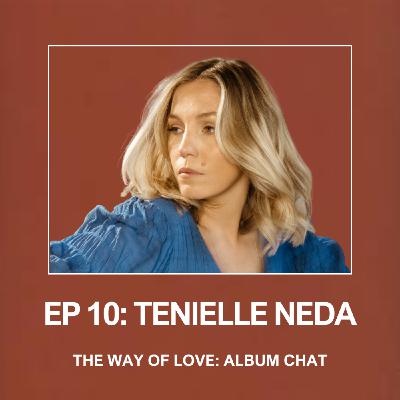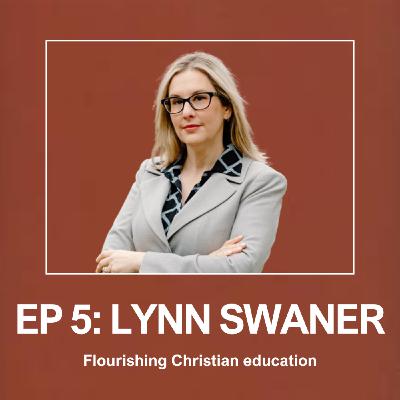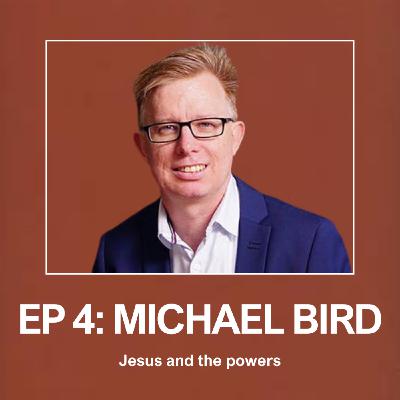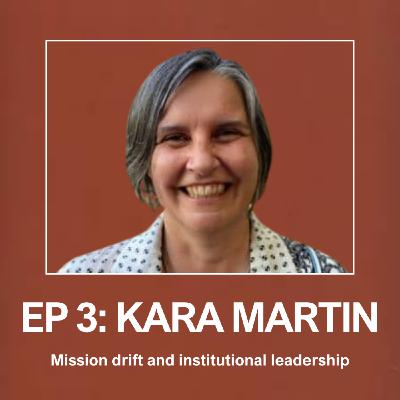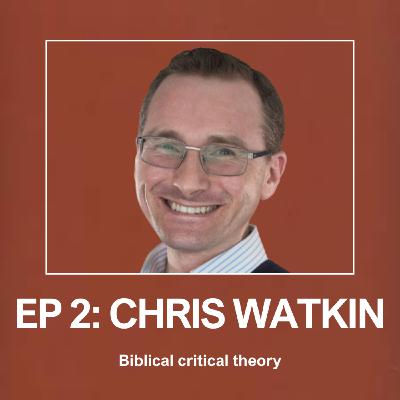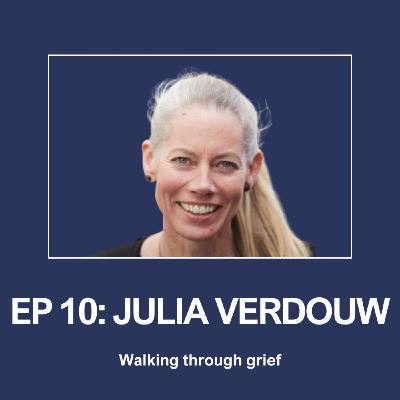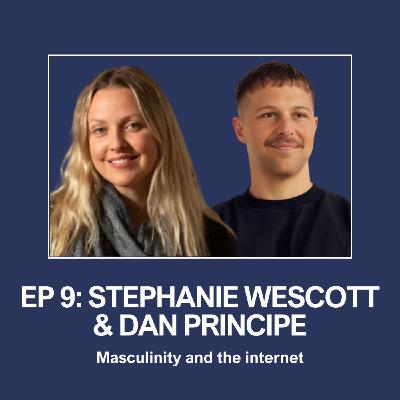Discover Makerspace
Makerspace

Makerspace
Author: Sam Burrows & CEN
Subscribed: 7Played: 77Subscribe
Share
© Sam Burrows, CEN, 2024
Description
Makerspace is a podcast run by Christian Education National, a network of Christian schools across Australia.
Find out more about us at https://cen.edu.au
Hosted by Sam Burrows
28 Episodes
Reverse
This week I got to speak with Canadian theologian and prominent author, Dr Sylvia Keesmaat. Sylvia is a biblical scholar, obtaining her doctorate at Oxford University, studying with N.T. Wright. She is a professor of biblical studies and hermeneutics at the Institute for Christian Studies in Toronto. Sylvia is the co-author, with her husband, Brian Walsh, of the popular books Romans Disarmed and Colossians Remixed, both books highlighting how the gospel challenges dominating powers and invites alternative, justice‑oriented ways of life both in the first century and today.In this conversation we talk about her work that centres around hearing Paul’s letters in their socio-political terms, about his anti-Empire language and what that means for us today. We also talk about hope and lament, and how we need to be forming communities that are grounded in the place they’re in, as well in important teachings.
In this episode I speak with Dr Justin Ariel Bailey, a prominent voice in Christian ministry and theological writing, Justin is a professor of theology at Dordt University in Iowa, and published a book, Interpreting Your World in 2022.In this conversation we talk about the changing nature of worldview studies, and how to find the balance between an appreciative and critical approach when Christians engage with culture. We chat through the history of the term "worldview" and what it might mean to lead students in important conversations now.
This I got to sit down with Dr Rod Thompson and Dr Ken Dickens, a couple of men that have been a significant part of our network for a number of decades. Rod as the coordinator of biblical foundations and lecturer in the National Institute, and Ken serving for a stint as the CEO of the network, principal of the national institute, and in more recent years, a lecturer too.Ken is part of a team that is putting together a history of our network to be released early next year, and I thought as part of the lead up to the book, I would sit down with him and Rod to get a sense of what it’s been like to have been part of the ongoing character and story of CEN. This is an extended episode because we cover a lot here, from the beginnings of the network including its underlying theological commitments, through to the growth phase, interactions with other groups and networks, and challenges looking forward. It was a really nice way to get a snapshot of what has made us who we are and capture something of these two guys as the pass on the baton.
This week I’m speaking to Diane Hockridge. Diane is an Australian educational designer and researcher, specialising in the design of online and distance-theological education, with a particular interest in spiritual and holistic formation of students. She is currently the Educational Designer at Ridley College in Melbourne and has a PhD in spiritual formation and online education.In this conversation we discuss the challenges and opportunities of online education, focusing on supporting students through diverse learning experiences and leveraging their existing contexts. We talk authentic learning, service-based assignments and reflective practices to foster student growth. We also explore the future of theological education, considering the role of new technology and AI.
This week I’m joined by Dr. Maja Whitaker. Maja is a New Zealand-based theologian, academic, and ordained pastor. She’s currently the Academic Dean and a lecturer in Practical Theology at Laidlaw College in Christchurch, New Zealand. She pastors Equippers Church in Timaru alongside her husband, Dave, and is a mother to four daughters.Maja’s research interests explore body theology, pastoral theology, spiritual formation, and disability theology. In this conversation we explore a lot of this, chatting through the resurrection and how to think through body ideals, how to think carefully about body difference, and how to let disability teach us.
This week I’m joined by Josh Taylor. Josh is an Anglican priest from the Diocese of Christchurch in New Zealand. He has experience in youth ministry, as a spiritual director, and several years as a Vicar in Timaru, New Zealand. He has just submitted a PhD through the University of Otago. His thesis is titled: “Speaking of Sin in 21st Century Aotearoa.”It’s his PhD that I’m talking to him about today. We explore why sin can feel like a foreign and awkward concept these days and then track other ways people have tried to express it. We talk about big ideas like total depravity and original sin and try to build a picture of thinking about the concept that’s actually hopeful, especially in light of cultural approaches to morality. This is a really helpful chat to help guide young people in a world that is pretty confused about what sin is and how we see God.
In this episode I speak to Tony Golsby-Smith. Tony is the co-founder and chairman of Second Road, a strategy and innovation firm. He is also behind Gospel Conversations, a theological discussion group behind various events and with numerous online resources .This conversation is a dense one, as we cover Tony’s journey through teaching into consulting, and then the relationship between Jesus, knowledge and reality. We talk about some of the inadequacies of some current evangelical theology and the nature of God’s work in the world. This is a challenging conversation but hopefully a stretching one too. I really enjoyed this conversation, and really appreciate the way Tony is searching for a theology that speaks to all of life. I’ve got a link for the Gospel Conversations website in below - it’s really worth getting involved with! He mentions an event with John Behr, which has already happened, but there’s video resource on the website that is well worth checking out.https://www.gospelconversations.comhttps://2nd-road.webflow.io
We kick off this new season with a return guest, the godfather of Christian education himself, David I. Smith. David is probably best known for his book, On Christian Teaching, and he’s just released a follow up to this, called Everyday Christian Teaching. This book is a more practical exploration of some of the concepts of the former book, and is full of suggestions for practices for the classroom, as well as powerful stories and reflection questions. CEN will be using his resources in a few different ways.https://calvin.edu/everyday-christian-teaching
This episode is a bit different! A little while ago I got to speak with Tenielle Neda, a Christian singer songwriter from Western Australia. Tenielle has just released her new album, The Way of Love.This chat is a chance to showcase some of her new music, but also talk about some of her journey, from appearing on Australian Idol, to making the music she does now. We talk through some of the songs, and talk about the role of worship music in context of the wider genre.Check out her album here: https://open.spotify.com/album/27B6xYGSZ31DjV0XXqeerp?si=a7hjuXahR5KvNPf6R2ZKIwhttps://www.tenielleneda.com
This week I get to speak to Dr Chris Marshall, a pioneering scholar working in the intersection of biblical theology and restorative justice. Chris has worked as a New Testament lecturer and lecturer in religious studies. He’s also worked with those involved in the criminal justice system and is the author of 7 books.In this conversation we talk about restorative justice, shame, and atonement theology. A key point we hone in on, is that there is a variety of language and metaphors that get used in the New Testament to explain what was achieved on the cross, but often we can get stuck only using the judicial language of punishment, rather than all the other language like adoption or new birth. When we focus only on this language it can perpetuate cycles of shame.
This week I got to have a conversation with Mark Barnard, an Anglican priest and educator from Auckland, New Zealand. Alongside his church leadership role, Mark is also employed by the Karuwhā Trust, an educational organisation focusing on telling New Zealand’s bicultural story.This is an important conversation that explores engaging in indigenous thought well, addressing different ways of seeing the world and approaching spirituality. This is a conversation about thinking this through in a New Zealand context, but perhaps that allows for more scope of thought rather than feeling like we’re being prescriptive. There are a couple of words that Mark uses quite a bit that might be helpful to know for the conversation- "Te Reo" refers to the Māori language, "tangata whenua" means “people of the land” and refers to Māori people, and "Pākehā" is the Māori word for those of European descent.
In this episode, we speak with Dr Christa McKirland. Christa is the dean of faculty at Carey Baptist College in NZ, where she also lectures in systematic theology. She obtained her PHD at the University of St Andrews and she has a wide range of published academic work.In this quite dense conversation we talk through a theology of authority and power, tracking closely with the new testament's conviction that it's not about having power over others. We chat about what we mean by systematic theology, apostleship and take a close look at women in leadership and the key text in 2 timothy. This is a fascinating and challenging discussion.
In this episode I got to speak with Grafton Tanner. Grafton is an American author and academic. His work focuses on Big Tech, nostalgia, neo-liberalism, and education. He is the author of books, Babbling Corpse, The Circle of the Snake, The Hours Have lost their clock, and more recently, Foreverism. In this conversation we chat about our culture's current obsession with nostalgia in media, politics and literature. We talk about how our current cultural mood is one that doesn't want to look a the future and so plunders the past and tries to expand the present. We touch on the internet, "retrobaiting", time and a concept at the heart of his new book, Foreverism.
In this episode I get to speak with Dr. Lynn Swaner. Lyn is the President of Cardus, a think tank in the states to dedicated to strengthening institutions for the common good. She is the editor or lead author of numerous books, including Future Ready, MindShift, and Flourishing Together. She holds a doctorate in organizational leadership and is a good friend of CEN, having spoken at a number of our conferences.We covered a lot of ground in this conversation, from a Christian understanding of flourishing to innovation and the place of research. We also talk about what it means for a Christian school to be distinctive and a core question that she talks about to help them stay on mission: what does love require?
Michael is an Australian biblical scholar, Anglican priest, and the Deputy Principal of Ridley College in Melbourne. He is the author of over thirty books including his latest one, Jesus and the Powers, cowritten with N.T. Wright. In this conversation, we continue in our discussion around difference by unpacking his new book, exploring nationalism, current cultural tensions, power, and veggie tales ethics.
In this episode I ask Kara Martin questions based on her book, "Keeping Faith: How Christian organizations can stay true to the way of Jesus." We talk about power, mission drift, leadership beyond niceness, risky faithfulness and how organisations can meaningfully enact grace, forgiveness and confession. There is a lot here for school leaders to mull over, so it could be a good one to share!Here's a link to the book:https://amzn.asia/d/3IUV5gz
This week we have some time with Chris Watkin, lecturer and researcher at Monash University. He is also the author of the award winning book, Biblical Critical Theory. This book explores how the bible shapes our imaginations and cuts across many of the binaries that exist in our culture today. In this conversation we talk about what we usually mean by critical theory, what it means to have a prophetic imagination and what it might mean that ultimate reality is personal. We’re looking forward to hosting Chris at our AGM in March, but for now, here’s my conversation with him as an appetiser.
In this first episode, we jump straight into the current tensions around difference in regard to immigration with Dr Matthew Kaemingk. Matthew is a Christian ethicist and public theologian lecturing at Fuller theological seminary. We’re actually going to be hosting him at our CEN executive conference in March, and in this conversation I ask a lot of questions based on his book “Christian hospitality and Muslim immigration.” He also hosts his own podcast, "Zealots at the Gate" linked below:https://open.spotify.com/show/5E9hQeCbLXoVp4wvjKHRNF?si=fdee682831d34d90
For this final episode of the season, I got to have a special conversation with a friend and colleague of mine, Julia Verdouw. Julia is a senior lecturer at the National Institute for Christian Education and has extensive experience in research and policy development. In this episode, however, we’re actually here to discuss her new book of poetry, writings collected from her journal following her husband’s sudden death 3 years ago. Her book, “Valley of the Shadow” is well worth picking up as an exploration of death, faith, grief and hopeJulia's website: https://www.juliaverdouw.com
This week is a slightly bigger one as we tackle a particularly pertinent issue right now. In the online space, masculinity has been undergoing some new constructions or reconstructions. Some of the ideas are new, others are a reintroduction of very old, even stoic ideas, but much of it is confused and even dangerous. It would seem that over the last few years, a reduction in positive talk about masculinity has left a gap, and there are certain voices that have emerged to fill that gap. These voices have the ears of many of the young men in our schools.A few months ago I spoke to Dr Stephanie Wescott, a lecturer at Monash University in the faculty of education, also previously a school teacher. Towards the end of 2023, Stephanie and her research team made national headlines in Australia due to the research paper they produced. The study showed that there is growing visibility of online ‘manfluencers’ who espouse extreme masculine ideals and share them with their audiences of boys and young men. Link to Stephanie's study:https://research.monash.edu/en/publications/the-problem-of-anti-feminist-manfluencer-andrew-tate-in-australiaOur second conversation this week, I also had a chance to chat with Daniel Principe, a youth advocate an educator who has spoken to over 60,000 students across Australia. He’s passionate about telling a better story for our young men and offering a positive vision for what being a man could be. We talk a lot about the effects of porn, but also talking about what positive, respectful relationships could look like.Dan's website:https://www.danielprincipe.com.au



